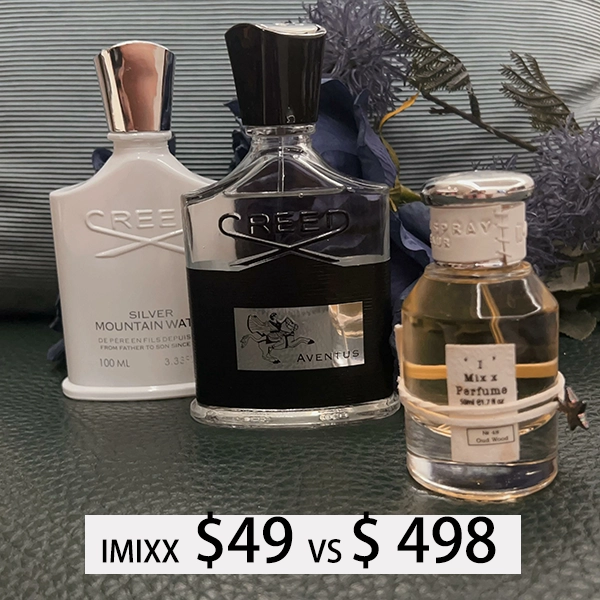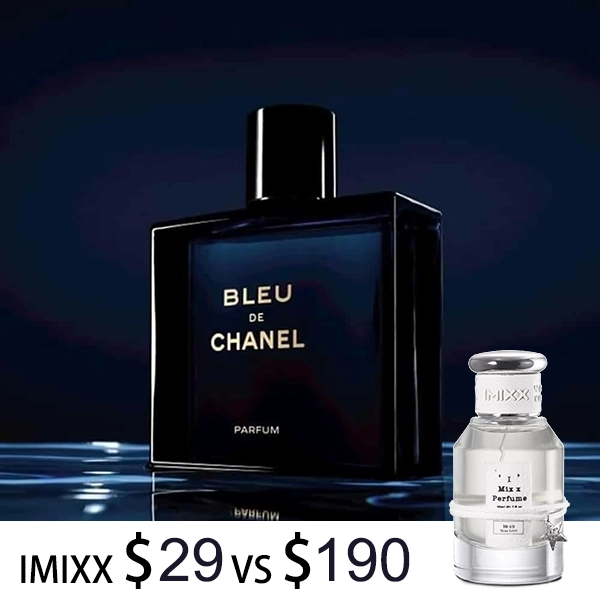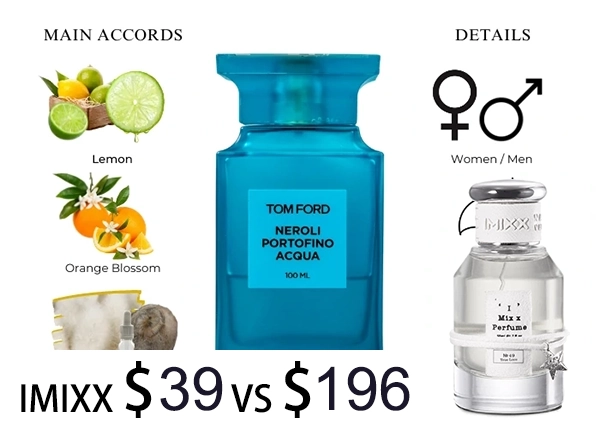Ever Wondered What is Cologne Made Of? Cologne, a fragrance that has been loved for centuries, often invokes images of refreshing, uplifting scents and is considered the go-to for casual or light everyday wear. However, despite its ubiquitous presence in the world of fragrances, many people remain unaware of what exactly makes up cologne. If you’ve ever wondered what is cologne made of, you’re not alone. In this article, we will dissect the ingredients, process, and science behind cologne to help you gain a deeper understanding of this popular fragrance. We will also explore some essential information about cologne, including the differences between perfumes, the best colognes for different occasions, and why understanding the composition of cologne can elevate your fragrance knowledge.
By the end of this article, you’ll know exactly what cologne is made of, why certain colognes smell so different from others, and how to choose a fragrance that fits your style and personality. So, let’s dive in and discover the intricate and fascinating world of cologne!
What is Cologne Made Of?

Cologne, or eau de cologne, is a fragrance that originated in the 18th century in Cologne, Germany. Over time, it has evolved into a global fragrance category, widely popular for its fresh and invigorating characteristics. But the question remains—what is cologne made of?
At its most basic, cologne is a mixture of three primary components: alcohol, water, and essential oils. The ratio and quality of these ingredients are what define a cologne’s scent, longevity, and overall fragrance profile. Let’s explore these ingredients in detail:
Key Ingredients in Cologne
1. Alcohol (Ethanol)
Alcohol is the primary solvent in cologne and serves as the carrier for the fragrance oils. It helps dilute the essential oils, making the fragrance lighter and more wearable. In addition, alcohol accelerates the evaporation process of the fragrance, which is why cologne has a more subtle and fleeting scent compared to perfumes. Ethanol is the most commonly used alcohol in fragrances due to its quick evaporation rate and ability to dissolve oils efficiently.
2. Water (Aqua)
Water acts as a stabilizing agent in cologne, ensuring that the fragrance maintains a balanced consistency. Water is usually combined with alcohol to dilute the intensity of the fragrance, making it more wearable throughout the day. While water doesn’t have a smell, it helps to dissolve the essential oils and create a homogenous mixture of ingredients.
3. Essential Oils
Essential oils are the heart of any fragrance. In cologne, these oils are often derived from a wide variety of plant-based sources, including flowers, fruits, herbs, spices, and woods. The essential oils in cologne determine the fragrance’s main characteristics—whether fresh, floral, citrusy, spicy, or woody. Some of the most popular essential oils used in cologne include:
- Citrus oils (e.g., lemon, orange, bergamot) for fresh, uplifting scents.
- Herbal oils (e.g., lavender, rosemary, mint) for calming, aromatic qualities.
- Floral oils (e.g., jasmine, rose, neroli) for sweet, romantic notes.
- Spicy oils (e.g., cinnamon, clove, cardamom) for warm, exotic undertones.
- Woody oils (e.g., sandalwood, cedarwood) for earthy, grounding effects.
4. Fixatives
Fixatives are ingredients added to fragrances to slow down the evaporation of essential oils and help extend the longevity of the fragrance. While alcohol evaporates quickly, fixatives keep the fragrance lingering on the skin. Natural fixatives can include resins, like benzoin or myrrh, or animal-derived substances, such as musk (although synthetic versions are now more common).
5. Water-Based Dilution
In cologne, the fragrance is usually diluted with water to adjust the concentration and make the perfume lighter. This is why cologne generally has a lower fragrance concentration compared to perfumes, making it more suitable for everyday, casual wear.
The Difference Between Cologne, Perfume, and Eau de Toilette
When it comes to fragrances, there are a variety of different categories that often leave consumers confused. What is cologne made of is one part of the puzzle, but understanding how cologne compares to perfume and eau de toilette is equally important. These distinctions are primarily based on the fragrance concentration and the composition of the scent.
Cologne vs. Perfume vs. Eau de Toilette
| Fragrance Type | Fragrance Concentration | Longevity | Best For |
|---|---|---|---|
| Perfume (Parfum) | 20%–30% essential oils | 6–8 hours | Special occasions, long-lasting wear |
| Eau de Toilette (EDT) | 5%–15% essential oils | 3–5 hours | Everyday wear, fresh scents |
| Eau de Cologne (EDC) | 2%–5% essential oils | 2–3 hours | Casual wear, refreshing scents |
As you can see, eau de cologne has the lowest concentration of fragrance oils, making it the lightest option for fragrance lovers. Cologne typically has a fresher, more fleeting scent and is perfect for a quick burst of fragrance.
What Are Some Popular Colognes and Their Notes?

Colognes are widely popular for their lighter and fresher scent profiles, but there are also many variations that appeal to different tastes. Below, we explore some well-known colognes and their notes to help you understand the wide range of possibilities when choosing a fragrance.
| Cologne | Key Notes | Best For |
|---|---|---|
| Acqua di Parma Colonia | Citrus, lavender, rosemary | Elegant and sophisticated wear |
| Chanel Allure Homme Sport | Citrus, ginger, tonka bean | Casual and sporty occasions |
| Tom Ford Neroli Portofino | Neroli, citrus, amber | Summertime or beachwear |
| Clinique Happy for Men | Citrus, lemon, lime, mandarin | Daytime, casual use |
| Creed Aventus Cologne | Green apple, birch, mandarin, musk | Fresh, masculine, versatile wear |
Why is Cologne So Popular?
Cologne’s popularity can be attributed to its versatility, refreshing fragrance, and lighter concentration, which makes it perfect for daily wear. Here are some of the reasons why cologne remains one of the most popular fragrance categories globally:
- Light, Fresh Scent: Cologne is often associated with refreshing and energizing scents that are perfect for everyday wear. The citrusy, floral, and herbal notes make it appealing for all seasons.
- Casual Wear: Unlike perfumes, which may feel too heavy for daily use, cologne’s light, subtle fragrance is ideal for casual, office, or daytime wear.
- Affordability: Colognes are often less expensive than perfumes, making them an affordable option for fragrance lovers looking to add variety to their collection.
- Unisex Appeal: Many colognes are designed to be unisex, allowing both men and women to enjoy the same refreshing scent. This makes cologne a perfect choice for those seeking versatile, gender-neutral fragrances.
What Are Some of the Best Cologne Dupes?
For those who love the fresh, citrusy fragrance of cologne but are looking for more affordable alternatives, there are several high-quality cologne dupes available. As part of this exploration, Imixx Perfumes offers fantastic dupes for popular colognes, ensuring you can enjoy the same high-end experience at a fraction of the price. Check out our selection at Imixx Perfumes.
Frequently Asked Questions (FAQ)
1. What is the difference between cologne and perfume?
Cologne has a lower concentration of fragrance oils, usually between 2% to 5%, making it lighter and more subtle. Perfume, on the other hand, has a higher concentration of essential oils, typically between 15% and 30%, resulting in a stronger, longer-lasting scent.
2. Why does cologne have such a short-lasting scent?
Cologne has a higher percentage of alcohol and water compared to perfumes, which causes the fragrance to evaporate faster. This results in a lighter scent that typically lasts around 2–3 hours, as opposed to perfumes, which can last 6–8 hours or longer.
3. Can cologne be worn by both men and women?
Yes, many colognes are unisex and can be enjoyed by both men and women. In fact, the light and fresh scents of many colognes, such as citrus or floral notes, make them perfect for anyone who appreciates refreshing, subtle fragrances.
4. How should cologne be applied for maximum effect?
For the best results, apply cologne to pulse points like your neck, wrists, and behind your ears. These areas emit heat, which helps diffuse the fragrance throughout the day. Additionally, spraying cologne on your clothes can help the scent last a little longer.
5. Are there any natural alternatives to traditional cologne?
Yes, there are natural colognes made with essential oils and organic ingredients, providing an eco-friendly and chemical-free option for fragrance lovers. These natural alternatives offer a more subtle, skin-friendly experience.
6. What are the best cologne scents for summer?
Light, citrus-based colognes are perfect for summer. Scents featuring notes of lemon, orange, bergamot, or mint are refreshing and uplifting, making them ideal for hot weather. Some popular options include Acqua di Parma Colonia and Tom Ford Neroli Portofino.
7. How can I make my cologne last longer?
To make your cologne last longer, apply it after showering when your skin is still slightly damp. You can also layer your cologne with matching body lotions or oils to help the scent stick better. Additionally, using a perfume primer or spray that enhances longevity can be helpful.
8. Is cologne suitable for sensitive skin?
While cologne generally contains alcohol, which can sometimes cause irritation for sensitive skin, there are many alcohol-free and hypoallergenic cologne options available. Look for colognes made with natural ingredients and free from harsh chemicals if you have sensitive skin.
9. What is the ideal time of day to wear cologne?
Cologne is typically worn during the day for casual and light occasions due to its refreshing scent. However, some heavier colognes with woody or spicy notes can also be worn in the evening. Ultimately, it depends on your personal preferences and the fragrance you choose.
10. How does cologne differ from eau de toilette?

Eau de toilette (EDT) typically has a slightly higher concentration of fragrance oils than cologne, around 5%–15%. While cologne tends to be lighter and more refreshing, eau de toilette is a bit more intense, lasting longer and providing a stronger scent.
11. Can cologne be layered with other scents?
Yes, cologne can be layered with other scents, but it’s important to ensure that the fragrances complement each other. For example, you can combine a citrusy cologne with a floral body lotion for a refreshing, well-rounded scent profile. Avoid mixing fragrances that clash in order to create a harmonious combination.
12. How do I choose the right cologne for my personality?
Choosing the right cologne depends on your personal preferences and lifestyle. Fresh, citrus scents are ideal for active or outdoorsy personalities, while woody or oriental fragrances are better suited for more sophisticated or bold individuals. Test different colognes to find one that suits your taste, and don’t be afraid to experiment with various scent families.
In conclusion, what is cologne made of can be broken down into three primary ingredients: alcohol, water, and essential oils. These ingredients combine to create a refreshing and light fragrance experience, ideal for everyday wear. Understanding the composition of cologne helps you make informed decisions when selecting the perfect scent for yourself. Whether you’re after a fresh, citrusy burst or a calming herbal aroma, cologne offers something for everyone. If you’re ready to experience the world of high-quality, affordable cologne dupes, head over to Imixx Perfumes for top-tier alternatives to your favorite luxury scents!

